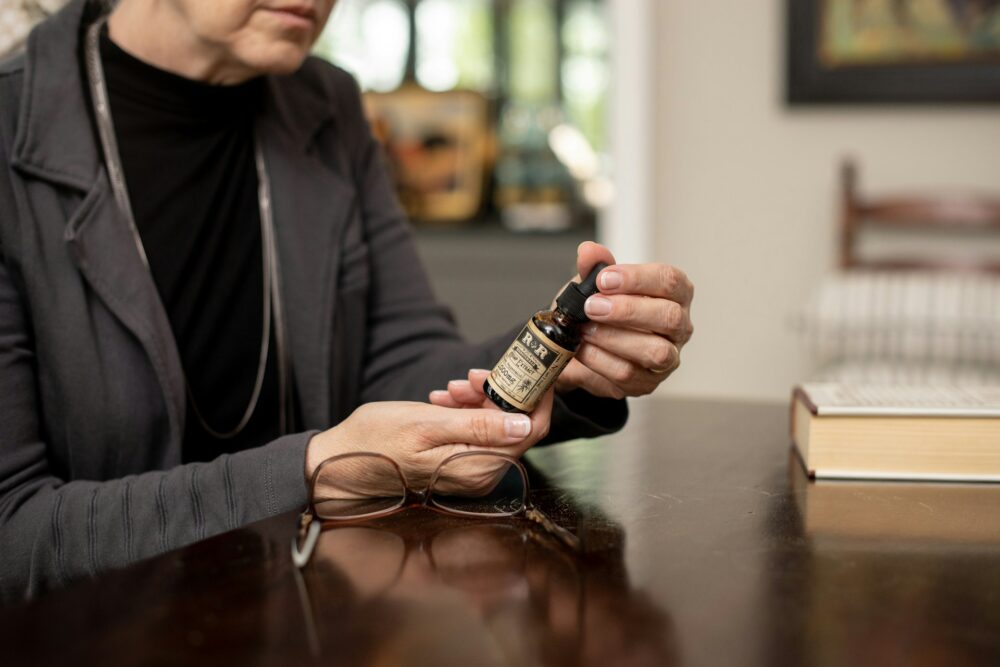Cannabis
Medical Cannabis Improved Depression Symptoms in over 50% of Patients: Study
The average depression severity score among study participants, measured on a scale from 0 to 10, was initially 6.9 points. After six weeks of medical cannabis use, the average score dropped to 5.1 points, and after twelve weeks – to 4.1 points. After 18 weeks of treatment, the average value decreased to 3.8 points. Importantly, in 14 patients (23.7%), the severity of depression was halved after just six weeks of therapy.

A recent study conducted by LVR University Hospital Essen, in collaboration with Algea Care, Europe’s leading telemedicine platform for patients using medical cannabis, revealed groundbreaking results on the effectiveness of medical cannabis in the treatment of chronic depression.
These results have a significant impact on the approach to treatment of this disease, offering new perspectives and solutions for patients suffering from chronic depression.
Read more on the subject and find the latest cannabis news of the day with the Hemp.im mobile app.
Study overview
The study, published in the renowned journal Pharmacopsychiatry, was a retrospective, long-term (18 weeks) study of 59 patients with chronic depression who did not achieve positive effects of treatment with traditional antidepressants.
Patients received medical cannabis flowers via the Algea Care telemedicine platform. This study focused on assessing the effectiveness of medical cannabis as an alternative treatment, taking into account both reducing the severity of depression symptoms and monitoring possible side effects.
Key conclusions
The study results were promising. The average depression severity score among study participants, measured on a scale from 0 to 10, was initially 6.9 points. After six weeks of medical cannabis use, the average score dropped to 5.1 points, and after twelve weeks – to 4.1 points.
After 18 weeks of treatment, the average value decreased to 3.8 points. Importantly, in 14 patients (23.7%), the severity of depression was halved after just six weeks of therapy. These results indicate a significant and statistically significant improvement in the medically documented severity of depression among patients.
Statistics and patient reactions
The patients participating in the study were between 20 and 54 years old, and 72.9% of them were men. Importantly, one-third reported regular cannabis use over the past five years.
The dropout rate was 22% after 18 weeks, which is comparable to clinical trials of antidepressants. An important aspect is the fact that 50.8% of patients reported a response to treatment (over 50% reduction in the initial result) after 18 weeks of therapy.
Side effects and safety
Although one-third of patients reported side effects, all side effects were classified as mild. The most frequently mentioned symptoms were dry mouth, dry eyes and increased appetite (6.8% of patients each).
A smaller group (3.4%) reported difficulty concentrating, fatigue or disorientation. It is important to emphasize that no serious side effects, such as psychosis, were observed, and the research team confirmed the safety of medical use of cannabis.
Summary
This groundbreaking study sheds new light on the potential effectiveness of medical cannabis in treating chronic depression. The results, which showed significant improvement in the severity of depression without serious side effects, are extremely promising.
Nevertheless, the study authors emphasize the need for further research – in particular, prospective cohort studies and randomized controlled trials with a larger study group – to obtain reliable treatment recommendations. These preliminary results open up new possibilities in the treatment of mental disorders, while also laying the foundation for future research into the impact of cannabis therapy on a variety of mental conditions and diseases.
__
(Featured image by R + R Medicinals via Unsplash)
DISCLAIMER: This article was written by a third party contributor and does not reflect the opinion of Born2Invest, its management, staff or its associates. Please review our disclaimer for more information.
This article may include forward-looking statements. These forward-looking statements generally are identified by the words “believe,” “project,” “estimate,” “become,” “plan,” “will,” and similar expressions. These forward-looking statements involve known and unknown risks as well as uncertainties, including those discussed in the following cautionary statements and elsewhere in this article and on this site. Although the Company may believe that its expectations are based on reasonable assumptions, the actual results that the Company may achieve may differ materially from any forward-looking statements, which reflect the opinions of the management of the Company only as of the date hereof. Additionally, please make sure to read these important disclosures.
First published in FaktyKonopne. A third-party contributor translated and adapted the article from the original. In case of discrepancy, the original will prevail.
Although we made reasonable efforts to provide accurate translations, some parts may be incorrect. Born2Invest assumes no responsibility for errors, omissions or ambiguities in the translations provided on this website. Any person or entity relying on translated content does so at their own risk. Born2Invest is not responsible for losses caused by such reliance on the accuracy or reliability of translated information. If you wish to report an error or inaccuracy in the translation, we encourage you to contact us.

-

 Crypto2 weeks ago
Crypto2 weeks agoBitcoin Wavers Below $70K as Crypto Market Struggles for Momentum
-

 Biotech3 days ago
Biotech3 days agoInterministerial Commission on Drug Prices Approves New Drugs and Expanded Treatment Funding
-

 Africa2 weeks ago
Africa2 weeks agoMorocco’s Tax Reforms Show Tangible Results
-

 Biotech6 days ago
Biotech6 days agoUniversal Nanoparticle Platform Enables Multi-Isotope Cancer Diagnosis and Therapy

























